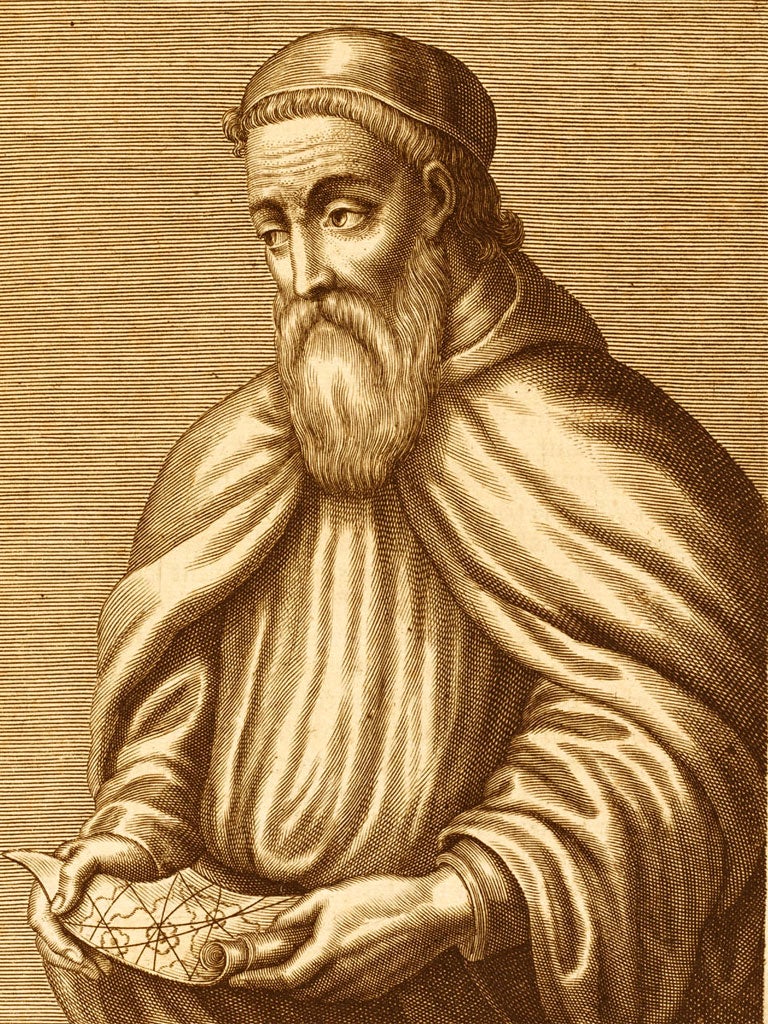Paradise Lust: Jury still out on man who gave his name to America
Amerigo Vespucci remains a complex figure. By Peter Popham

Christopher Columbus did not know where he was going when he set out or where he had been when he got back. But was Amerigo Vespucci (who died 500 years ago today), after whom America was named, any better informed?
A person who has not one but two continents named after himself is likely to attract his share of jealousy. The Florentine mathematician and navigator who crossed the Atlantic a few years after Columbus, making landfall in Venezuela and Brazil and reaching almost as far south as Patagonia, has been called many names over the years, a deliberate liar, a "faker", a "false pickle-dealer" and much else.
Yet there is little doubt that he was a great navigator, reared in the intellectual hothouse of Medici Florence, later receiving the title "Pilot Major" by the King of Spain himself.
Vespucci was born in 1454 and was soon swept up in the hectic, scholarly atmosphere of the city and became a close friend of a cousin of Lorenzo de'Medici.
With the fall of the Khans in China and the conversion of the Mongols who ruled Persia to Islam, Marco Polo's land route to the Far East was blocked. Thanks to Polo, all Europe knew about the riches of the Orient and now the Renaissance men of Florence and elsewhere dreamt of reaching them by sea.
In 1491, the year before Columbus made landfall in "the Indies", Vespucci left Florence and headed for Seville. Supporting himself as a supplier to departing ships (hence the "pickle-dealer" slur), he immersed himself in maps and charts and speculation. He left on his first voyage on 10 May 1497.
To Vespucci, the coast of modern Venezuela and Brazil, where his expedition landed, had nothing in common with the zones described by explorers of the Orient. Instead this was an unimagined world.
"Surely," he wrote, "if the terrestrial paradise be in any part of this earth, I esteem that it is not far from these parts." In his description, the people he encounters are living in a dream-like state of bliss: with no metals except gold, no clothes, no signs of age, few diseases, no government, religion or trade. In a land rich in animals, plants, colours and fragrances, free from the stain of civilisation, "they live 150 years and rarely fall ill".
But turn the coin and he was in a world of devils. "They eat one another, the victor [eats] the vanquished. I know a man... who was reputed to have eaten more than 300 bodies..." The women are intensely desirable: "none... among them who had a flabby breast", but they are also monsters and witches: "...being very lustful, [they] cause the private parts of their husbands to swell up to such a huge size that they appear deformed and disgusting... in consequence of this many lose their organs which break through lack of attention..."
The wild and fantastic nature of Vespucci's descriptions raises the question of how reliable his observations are, but then vast doubt surrounds almost everything about his adventures. We don't know how many voyages he undertook, his authorship of some of the accounts is questionable and it is not even universally accepted that he identified South America as a new continent. That honour may more rightly lie with the man who immortalised his name: a German geographer called Martin Waldseemüller, a member of an amateur learned society. In the society's survey of world geography published in 1505 they included one of Vespucci's accounts and a world map with the new, southern continent labelled "America" – the first time the coinage had been used, in honour of "its discoverer, a man of great ability".
The geographer later changed his mind about Vespucci's worthiness and wanted to change the continent's name.
But by then the Florentine's tales of sex and cannibalism in paradise had made him world famous.
And the name stuck.
Subscribe to Independent Premium to bookmark this article
Want to bookmark your favourite articles and stories to read or reference later? Start your Independent Premium subscription today.

Join our commenting forum
Join thought-provoking conversations, follow other Independent readers and see their replies